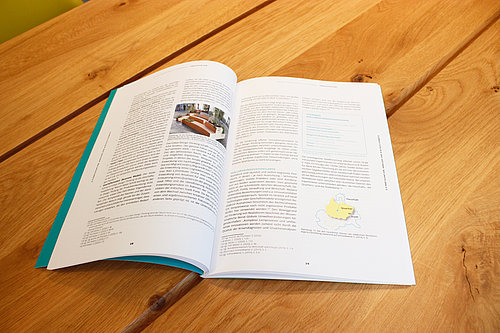Open innovation at the city level: How can urban society get involved in innovation processes?
Cities are currently facing a number of major challenges. These challenges are linked to complex issues such as climate change, digitalization, new technologies, and new models of work, mobility and consumption. How can cities shape their future in this situation? The answer to this question is not easy. Crucial to approaching an answer seems to be, first of all, recognizing that solutions cannot be expected from individual actors alone.
Rather, ideas must be sought from all parts of urban society and profitably brought together. The participation of urban society is a crucial lever for innovation at the city level. The study focuses on the questions of what role participatory procedures play in open innovation processes, what such procedures can look like, and what factors are decisive in strengthening the innovative capacity and thus the sustainability of cities. To answer this question, theoretical considerations as well as findings from urban practice are brought together.
"Our OIC study illustrates the innovation opportunities that arise for urban spaces through the participation of urban society. A place-specific approach to important societal questions about the future can become possible in this way. What is important here is an active effort to involve all parts of urban society," says Dr. Mirko Petersen, research associate at Open Innovation City. The paper identifies five key aspects of participation for open innovation processes: Goals, Participant:s, Modes of Participation, Timing of Involvement and Formats. In addition, the Australian city of Melbourne and the German cities of Dortmund and Ulm are presented with their interesting participatory approaches. Finally, opportunities and challenges of participation are examined and recommendations for action are made.
The bound version of the study is now available free of charge at the Innovation Office (Alter Markt 13, 33602 Bielefeld) or can be downloaded digitally.
